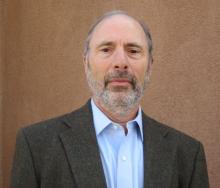What Is It
William James is a great figure, historically important as a philosopher (pragmatism and radical empiricism), a student of religion (author of the monumental Varieties of Religious Experience), and psychology. Ken and John examine the life and ideas of this towering figure with Russell Goodman, a leading scholar of Pragmatism and editor of Pragmatism: A Contemporary Reader.
Listening Notes
“William James” is nearly synonymous with radical empiricism and pragmatism. He influenced literary history by developing the stream of consciousness, and became a prolific philosopher and psychologist—teaching both subjects at Stanford University, one might ad. John distinguishes between pragmatism about linguistic meaning and pragmatism about truth. Pragmatism about linguistic meaning looks something like this: a camper is chasing a squirrel around the trunk of a tree. Do we say that he is running around the squirrel or not? It seems like there is no empirical evidence that could go one way or another, so we shouldn’t think that either description is definitively correct. Pragmatism about truth is the stronger claim that, roughly speaking, truth is what works for you.
Russell Goodman joins the discussion, and gives us a brief biographical portrait of James. James, much like the stream of consciousness, wandered around from being an artist, to studying chemistry and physiology, and ending up in philosophy and psychology. He never studied philosophy formally, and sometimes that shows in his loose, uncontrolled writing style.
James’ pragmatism is often seen as a very scientific philosophy, but it was dealt with the limits of science. It treats knowledge as a holistic system, and it’s not always easy to separate science, religion and ethics. John worries about consistency in James’ overall views, and Russell does his best to defend them (mostly). From here the conversation steers towards the question of whether pragmatism ends up being a fancy word for relativism. John, Ken and Russell talk about the relationship between James and other great thinkers, particularly Ludwig Wittgenstein, who was always equivocal about what he thought of pragmatism.
- Roving Philosophical Report (seek to 5:47): Julie Napolin chats with professors of English literature about William James’ contributions to literature with the introduction of the “stream of consciousness.” The conscious mind, thought James, is not linear or logical. Rather, it stops and goes in sudden bursts like a bird hopping and flying from branch to branch. This layered sense of consciousness left a profound mark in the literary world, perhaps most notably in the case of James Joyce. What can we make of this interior associative monologue? Musicality of all the outliving out ranking out bursting from motifs of have you read any good books recently, the rain sure does wash everything a flow, doesn’t it?
- Conundrum (seek to 46:45) A listener from Vancouver, Washington asks, “Can someone who never lies really tell the truth? Can we live without lying? Is omission a lie? Is it ever right to lie?” John, Ken and Russell puzzle over these head scratchers, and suggest that in the end, you need to settle these ethical questions on a case-by-case basis.
Transcript
Transcript
Ken Taylor
Welcome to Philosophy Talk, the program that questions everything...
John Perry
...except your intelligence. I'm John Perry.
Ken Taylor
And I'm Ken Taylor. We're coming to you from the studios of KALW San Francisco.




Comments (1)
wollda92
Monday, May 5, 2025 -- 9:25 AM
Hello! I would like toHello! I would like to recommend a site that I often play on - it's 1win Official website I was impressed with how everything is organized: from registration to withdrawal. The platform is stable and everything works as stated. There are a lot of interesting bonuses that really help and do not cheat.